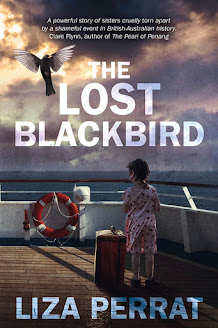What favourite foods are you bringing to our summer picnic?
I’m bringing a cheese and spinach shortcrust pastry pie, egg and cress sandwiches, a bag of mixed Mediterranean olives and a large pot of lemon-flavoured humous. I may be tempted to eat some of your green salad!
For dessert?
Freshly-baked scones with raspberries and some clotted cream would be nice, or maybe a light summer salad with some crème fraiche spooned over the top?
Would you like chilled white wine, a flute of Prosecco, a tumbler of Pimms, or a tall glass of sparkling elderflower cordial?
A flute of prosecco, please. Lovely!
Where shall we sit, by the pool, in the garden, in the countryside, at the seaside?
At the seaside please…I find the gentle sound of the waves very relaxing. Nothing better than stretching out on the warm sand when you’re done, or maybe we could even go for a dip before our lunch?
Do we have a wicker hamper, tablecloth and cutlery, or is everything in a supermarket carrier bag?
I love the idea of the wicker hamper. Very civilised and organised. (I don’t own one, myself). I might go for plastic wine glasses though (being practical!) But I’d be sure to bring some ice to make up for it, to chill the wine. Underneath, maybe we’d have a bamboo mat to stop the sand getting in our lunch.
Do you have favourite place to have a summer picnic?
I still have fond memories of a picnic we had once in the grounds of Hampton Court while waiting for them to open up the area where a band was playing inside. It’s such a romantic, beautiful location. It had been raining all day, and everything was freshly rain-washed, but the evening sun was glorious. I’d like to go back and have a picnic there again, one day.
Which of your literary heroes are joining us on the picnic today?
I’ll join you in requesting Daphne Du Maurier, whose work as you say, never ages. I’d also invite my favourite childhood author Rosemary Sutcliff. I adored her work! I did end up meeting her a few times, and we corresponded for ages… such a lovely lady, with so much of interest to say.
Which summer read are you bringing with you today?
I’m bringing Christina Courtenay’s Echoes of the Runes. I usually read contemporary or non-fiction books these days but every so often I fancy dipping into historicals for a change. And this is a lovely one!
 |
Headline
June 2020 |
What is your earliest summer memory?
I remember being taken to the beach for the first time by my aunt and uncle and cousins and going straight for the water’s edge… only to find myself rudely picked up by a huge wave and sent tumbling head over heels right down the beach… That was a shock and a rude awakening – but I’ve always loved the water. I adore the sea and I respect it!
Do you have a favourite summer hideaway?
I do have a nice garden myself, but there is something very special about my son’s garden, just down the road from me. It’s full of fruit trees – apple and plum and cherry and pear and the whole place just radiates a very special kind of peace that I love. There’s seldom any noise from his neighbours either. Sometimes I just like to sit on his lawn when the sun’s out, and imagine my stories…
Do you have a summer music playlist for reading / writing? And if so will you share with us a favourite song or piece of music that makes you feel summery?
I don’t have a special playlist for summer, but one song I’ve been playing a lot recently is Conquest of paradise by Dana Winner. I’d never heard it before this year, but it feels so inspiring! I’ve also been playing a lot of songs from the US acapelo band Homefree recently. Love their harmonies – and the music is usually quite cheerful and upbeat.
Do you find that your reading tastes differ between winter and summer?
I agree in the summer you want something that’s easier to pick up and get back into, because you’re out and about more. The winter’s the perfect time to diving into deeper, more serious books that involve a bit more concentration! For some reason, winter lends itself to historical more, too…
 |
Boldwood Books
11 August 2020 |
When Ava’s partner Will is diagnosed with a terminal brain tumour, the doctors give Will one chance to survive – an operation which means he will lose his recent memory. Ava begs him to take the chance, sure that she can cope with Will forgetting her. After all, they have something very special to live for.
But they are also keeping a heart-breaking secret, and if Will loses his memory, Ava will have to carry that secret alone.
Can they rebuild their love from scratch or will their secrets and past come between them? Will Ava really be a stranger when Will wakes up – or does the heart never really forget…
About Giselle
Giselle Green is an award-winning, bestselling contemporary women’s fiction author. Mum to six boys (half of whom have flown the nest) and owner of one bright orange-and-cinnamon canary who hopefully never will, Giselle enjoys creating emotionally-gripping storylines about family and relationships. Her first book for Boldwood The Girl You Forgot is published in August 2020.
Giselle, where can we find you on social media?
Facebook : Giselle Green Author
☼Thank you for coming to our picnic☼
Follow on Twitter
#SummerPicnicwithJaffareadstoo





























